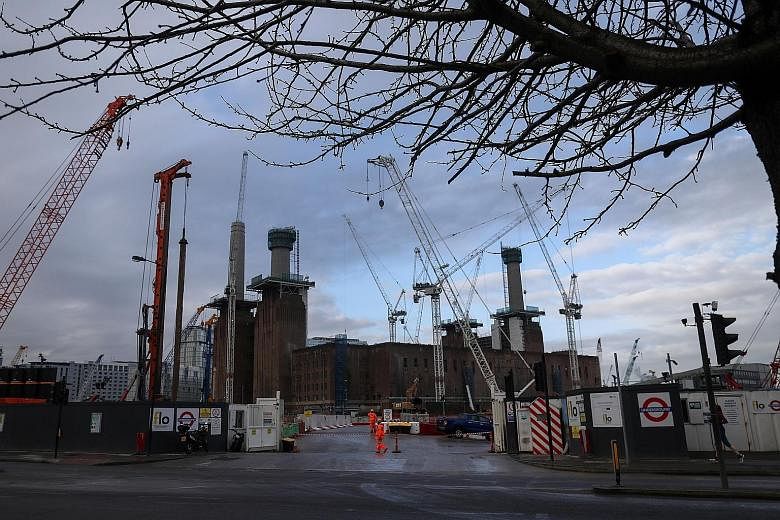LONDON • Britain's Carillion collapsed yesterday after its banks lost faith in the construction and services company, forcing the government to step in to guarantee major public works contracts.
In one of the biggest British corporate failures in recent years, Carillion went into compulsory liquidation after costly contract delays and a slump in new business left it swamped by debt and pension liabilities of around £1.5 billion (S$2.7 billion)
The demise of the 200-year-old business poses a headache for Prime Minister Theresa May's government, which had employed Carillion to work on 450 projects, including the building and maintenance of hospitals, prisons, defence sites and a high-speed rail line.
The government's priority is to ensure that public services are not disrupted, said Mr David Lidington, the minister in charge of the Cabinet Office which oversees the running of government.
Some contracts handled by Carillion would go to alternative providers, he added. He also urged the company's staff to continue to work and said the government would pay their salaries.
Although the government has promised to support workers and ensure contracts are delivered, it has stopped short of bailing out the company as it did with major banks during the financial crisis almost a decade ago.
Carillion owed around £900 million to banks, which include the country's five biggest - RBS, Santander, Lloyds, HSBC and Barclays - and it has a pension deficit of £580 million.
"In recent days we have been unable to secure the funding to support our business plan and it is... with the deepest regret that we have arrived at this decision," Carillion chairman Philip Green said.
Employing 43,000 people worldwide, including 20,000 in Britain, Carillion has been fighting for survival since July when it revealed it was losing cash on several projects and had written down the value of its contract book by £845 million.
With banks refusing to accept the group's latest attempt to restructure, Mrs May's senior ministers met around the clock in recent days, under pressure from the opposition Labour Party and unions not to use taxpayer money to prop up the failing company.
Ministers, top bankers and company bosses scrambled to find a way to save the firm in last-ditch talks over the weekend. But Carillion announced its own "compulsory liquidation" just over an hour before the London Stock Exchange opened yesterday.
The company's collapse comes at a difficult time for Mrs May, who is trying to negotiate Britain's exit from the European Union.
The Labour Party asked why her government continued to award contracts to Carillion despite its profit warnings, and why Britain had handed over so much of its public service work to private companies.
REUTERS

